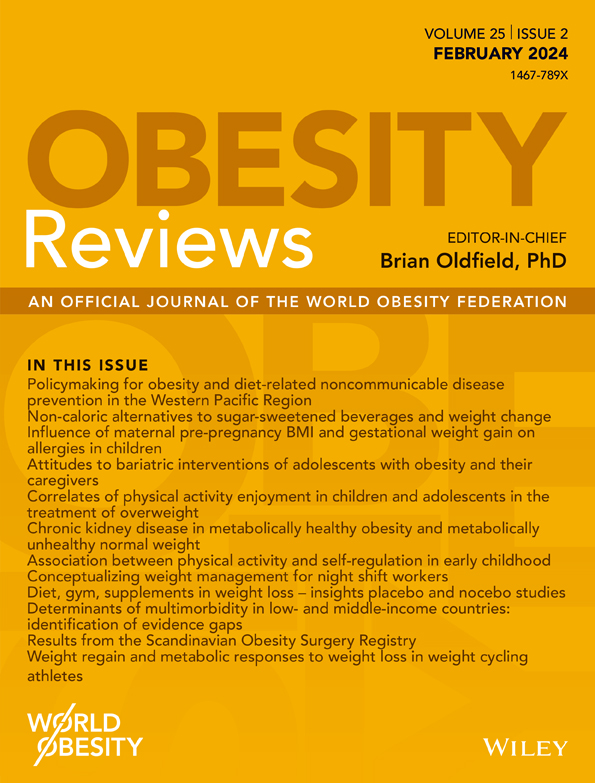Discontinuing glucagon-like peptide-1 receptor agonists and body habitus: A systematic review and meta-analysis
Abstract
Research on Glucagon-like peptide 1 receptor agonist (GLP-1RA) has mainly focused on the efficacy of weight loss and not the long-term efficacy of weight loss maintenance. This systematic review and meta-analysis aims to evaluate the sustainability of weight loss of patients taking GLP-1RAs following the discontinuation of the drug. EBSCOhost was used to simultaneously search Academic Search Premier, CINHAL Ultimate, Cochrane Central Register of Controlled Trials, MEDLINE with full text, Cochrane Database of Systematic Reviews, and separate PubMed search was systematically investigated using a predetermined search strategy from inception to February 1st, 2024. The authors extracted data regarding body weight change from baseline on treatment and off treatment, change in waist circumference from baseline on and off treatment, and change in BMI from baseline on and off treatment. Meta-analysis was conducted using RevMan (version 5.4) to calculate pooled mean differences using a Der Simonian-Laird Random Effects model. ResultsThe initial search yielded 497 relevant articles and, after screening, retained 8 randomized controlled trials comprised of 2372 participants, all with a BMI ≥ 27 kg/m2. After discontinuing GLP-1RA therapy, weight regain was proportional to the original weight loss. Participants who took liraglutide regained 2.20 kg (95% CI 1.69 to 2.70, P < 0.00001), and participants taking semaglutide/tirzepatide regained 9.69 kg (95% CI 5.78 to 13.60, P < 0.00001). This systematic review and meta-analysis show that significant weight is regained after discontinuing GLP-1RA treatment, which should be discussed when stopping therapy.
Practitioner Points
Question: Does discontinuation of Glucagon-like peptide 1 receptor agonist (GLP-1RA) treatment lead to significant weight gain?
Findings: In this systematic review and meta-analysis, discontinuing GLP-1RA treatment led to a pooled overall mean weight regain of 2.20 kg in participants taking liraglutide and 9.69 kg in those patients prescribed semaglutide/tirzepatide. The proportion of weight regained was proportional to the amount originally lost.
Meaning: Discontinuation of GLP-1RA treatment leads to weight regain, regardless of lifestyle interventions, and should therefore be considered a chronic therapy to prevent weight regain and associated undesirable outcomes related to obesity.

 求助内容:
求助内容: 应助结果提醒方式:
应助结果提醒方式:


